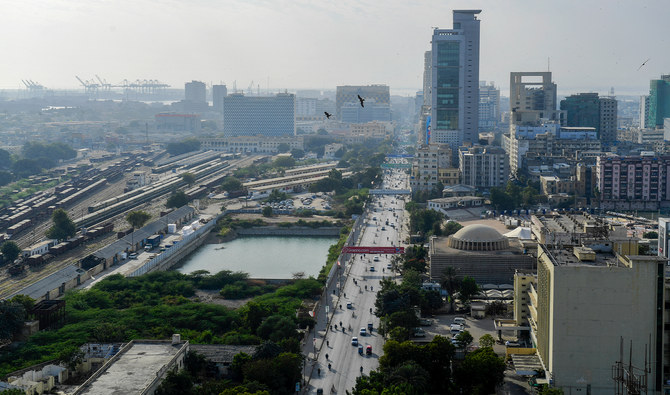KARACHI: Highlighting exorbitant energy costs, a high interest rate, and multiple taxations as major hurdles to industrial growth, Pakistan’s leading body of industrialists and traders on Wednesday said it hoped the government would address these challenges next week when it unveils the federal budget.
Pakistan’s Finance Minister Muhammad Aurangzeb is expected to unveil budget 2024-25 next week in the parliament. The document will outline the government’s financial plans and allocations across various sectors. The budget will also shed light on Pakistan’s economic priorities, potential reforms and strategies to address pressing fiscal challenges.
The development takes place as the South Asian country grapples with an economic crisis that has seen its reserves plummet, national currency decline in value significantly against the US dollar, and inflation surge.
The Federation of Pakistan Chambers of Commerce & Industry (FPCCI), the apex representative body of Pakistani traders and industrials in the country, said it has submitted budget proposals to the government, adding that it expects 80 percent of its demands to be met.
“We have collected all the information from our trade bodies, from all the chambers and we have made the proposals and we have already sent them to the FBR (Federal Board of Revenue), Ministry of Finance and the other departments,” Atif Ikram Sheikh, the FPCCI’s president, told Arab News on Tuesday.
Sheikh said the FPCCI has invited the government’s attention toward major issues that industrialists and traders in Pakistan encounter, such as exorbitant energy costs, taxation and the prevailing high interest rate.
He said these issues were not making it “bearable” to run industries in Pakistan.
“So we want the government to reduce interest rates, energy costs like fuel prices, gas and electricity and to run the economy in a better way,” Sheikh explained.
Pakistan has hiked prices of fuel and energy as part of reforms demanded by the International Monetary Fund (IMF) in exchange for a $3 billion loan program last year.
Pakistan increased gas charges by 318.74 percent and electricity charges by 71.12 percent since April 2023, as per official data. Surging energy costs took inflation to a historic high of 38 percent in May 202, which gradually eased to 17.3 percent in April 2024.
Pakistan’s central bank has projected the annual average inflation in the range of 23– 25 percent for the current fiscal year against a target of 21 percent.
The country’s finance minister expects inflation to decrease to 13.5-14.5 percent range in May 2024 and decline further to 12.5-13.5 percent by June 24.
Industrialists want the government to slash the interest rate, which has made the cost of borrowing high in Pakistan. The central bank has cumulatively raised the policy rate by 1,500 basis points during FY22 and FY23 and has maintained it at 22 percent at present.
Pakistan’s finance ministry said on Wednesday it expects a “promising” economic outlook amid improving industrial activities.
“The economic outlook is promising as industrial activities are gradually improving, inflation is on a downward trajectory and the external sector is stable,” the finance ministry said in its monthly economic report for May 2024.
The ministry observed that as the fiscal year is about to end, the economic indicators reflect that stability is gaining strength in the real, fiscal and external sectors.
It said Pakistan’s GDP growth is increasing while the inflation rate is on a decline, reflecting the effectiveness of recent fiscal consolidation efforts. The report said the country’s economic performance also reveals that agriculture has been a major contributor to this fiscal year’s economic upswing, attributed to government-led initiatives that enhanced input supply and credit disbursements.
The FPCCI has demanded a reduction in import duties and sales tax on various items. The body has also demanded a revival of the zero rating of sales tax for five export-oriented sectors, namely sports, surgical, leather, textiles, and carpets.
“We are sure and expecting what we are sending, what we have requested to the government, they will consider the FPCCI’s proposals,” Sheikh said.
“And I am sure 80 percent of our demands will be fulfilled.”















